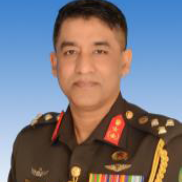
Md Mahfuzul Karim
Work place: Department of Computer Science and Engineering, Military Institute of Science and Technology Mirpur Cantonment, Dhaka 1216, Bangladesh
E-mail: mahfuz25th@gmail.com
Website: https://orcid.org/0009-0009-0189-293X
Research Interests:
Biography
Md Mahfuzul Karim Majumder, ndc, psc, te, is the Head of the CSE Department at MIST, Bangladesh. He has an extensive background in telecommunication, information security, and leadership, with key roles at BTRC, BTCL, and BSCL. His research focuses on cybersecurity, disaster management, and technological advancements.
Author Articles
Machine Learning-based Renewable Energy Adaptation: Case study Bangladesh
By Shahir Ahmed Apurba Muhibullah Muhibullah Md Mahfuzul Karim Nusrat Sharmin
DOI: https://doi.org/10.5815/ijem.2025.04.05, Pub. Date: 8 Aug. 2025
For environmental sustainability and energy security, renewable sources must be incorporated into sustainable energy solutions. Machine learning (ML) techniques are explored in this study to optimize the adoption of renewable energy sources in Bangladesh. Specifically, it proposes a three-phase methodology: (1) forecasting demand for nonrenewable energy, (2) predicting renewable energy availability and costs, and (3) analyzing potential savings and environmental benefits. Utilizing decision trees and random forests, this study presents a comparative analysis of energy demand and cost predictions, contributing to a data-driven framework for energy transition. The results indicate that strategic adoption of renewable energy can mitigate Bangladesh’s electricity shortages while reducing dependency on fossil fuels. Machine learning plays a crucial role in energy optimization by accurately forecasting energy demand and availability, allowing for better resource allocation. It helps identify patterns and trends in energy consumption, enabling more efficient integration of renewable sources. By using techniques like decision trees and random forests, machine learning models can optimize energy production and distribution, ultimately leading to more sustainable and cost-effective energy systems.The findings provide policymakers and energy planners with insights to enhance sustainability efforts.
[...] Read more.Other Articles
Subscribe to receive issue release notifications and newsletters from MECS Press journals